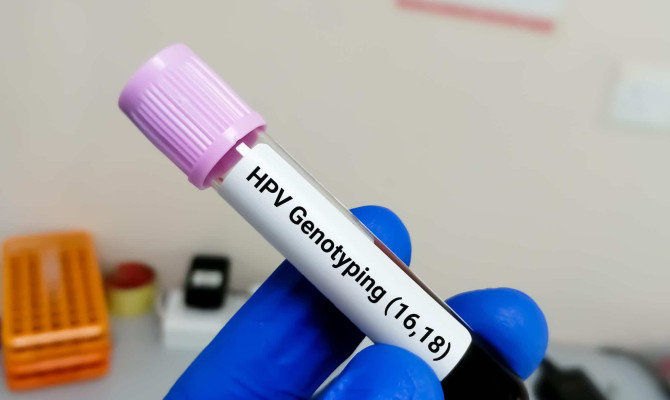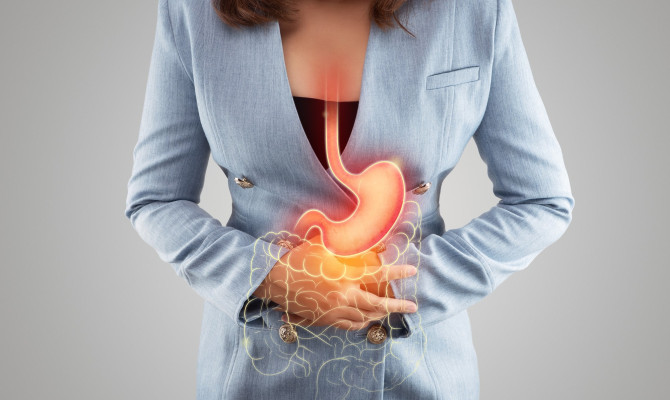Inflammatory bowel disease (IBD): Types, Symptoms, Causes and Treatment

- Inflammatory bowel disease (IBD)
- 22 Aug 2023
Overview
What is Inflammatory bowel disease (IBD)?
IBD, or inflammatory bowel disease, is a class of persistent inflammatory gastrointestinal illnesses affecting millions worldwide. The gastrointestinal system is made up of multiple hollow organs, including the mouth, the throat, stomach, small intestine, large intestine, and anus.1Overview| Researched based study from Niddk.nih.gov These illnesses can result in various upsetting symptoms that significantly influence the affected people’s quality of life. The digestive tract becomes damaged by persistent inflammation. IBD is a chronic condition that worsens over time and can harm other organs if not identified and treated correctly.
This article discusses the types, symptoms, causes, risk factors, diagnosis, therapy, prevention, consequences, and prognosis of Inflammatory Bowel Disease (IBD).

Types
Types of Inflammatory bowel disease
Inflammatory bowel disease comes in two main varieties:
- Crohn’s disease
- Ulcerative colitis
Crohn’s Disease
- This type of IBD typically affects the small and large intestines, although it can affect any digestive tract region, including the mouth and anus.2Types| Researched based study from Medlineplus.gov
- It frequently involves severe inflammation that spreads through the entire intestinal wall.
Ulcerative Colitis
- In ulcerative colitis, the colon’s inner lining is typically the only area of inflammation, which results in the development of ulcers3Types| Researched based study from Mayoclinic.org
- The large intestine and rectum are the most affected by this illness.
Symptoms

Symptoms of Inflammatory bowel disease
Depending on the precise kind of IBD, symptoms might vary significantly from one individual to another. Common IBD symptoms include:
- Abdominal pain 4Symptoms| Researched based study from Cdc.gov
- Diarrhea
- Weight loss & Fatigue
- Blood in the stool 5Symptoms| Researched based study from Mayoclinic.org
- Fever and inflammation
- Reduced appetite
Abdominal pain
- IBD is characterized by abdominal pain that is either constant or intermittent.
Diarrhea
- Ulcerative colitis and Crohn’s disease are characterized by persistent, loose, and frequently bloody feces.
Weight loss and Fatigue
- Chronic gastrointestinal tract inflammation can impair nutrient absorption, resulting in weight loss and Fatigue.
Rectal bleeding
- Blood in the stool is a worrisome sign that should not be disregarded and requires quick medical attention.
Fever and inflammation
- Inflammation throughout the body can result in fever and other systemic symptoms.
Reduced appetite
- The pain and discomfort of IBD can cause people to lose their appetite.
Causes
Causes of Inflammatory bowel disease
There is yet no known cause for Inflammatory Bowel Disease (IBD), but it could be brought on by:
- Immune system weakness.
- An inherited propensity.
Immune system weakness
- The gastrointestinal tract becomes inflamed when the immune system reacts inappropriately to environmental triggers like viruses or bacteria.
An inherited propensity
- People with an IBD family history are more prone to have this abnormal immune response. 6Causes| Researched based study from Cdc.gov
Risk factors
Risk factors
Additional risk factors for IBD include:
- Gender – While ulcerative colitis affects both sexes equally, Crohn’s disease is significantly more frequent in girls than in males.7Risk factors| Researched based study from Nlm.nih.gov
- Environmental Factors – Certain environmental factors, including a diet rich in processed foods and refined sugars, may play a role in the emergence of IBD.
- Autoimmune Response – IBD is assumed to be an autoimmune disorders in which the immune system of the body erroneously attacks the healthy cells in the gastrointestinal tract.
- Smoking – While it appears to protect against ulcerative colitis, smoking has been related to an increased chance of developing Crohn’s disease. Still, quitting smoking is crucial for overall health7Risk factors| Researched based study from Nlm.nih.gov
Diagnosis
Diagnosis of Inflammatory bowel disease
A thorough review of the patient’s medical history, a physical examination, and diagnostic tests are required to diagnose IBD. These testing could consist of the following:
- Blood tests – can be performed to check for indications of anemia, inflammation, or nutritional deficits.
- Stool test – Stool samples can detect bleeding or inflammation and rule out illnesses.
- Imaging Studies – X-rays, CT scans, or MRIs can be used to examine the digestive system and spot any structural irregularities.
- Colonoscopy – Inserting a flexible tube containing a camera into the colon and rectum enables the physician to inspect the lining of the digestive tract and collect tissue samples (biopsies) for examination8Diagnosis| Researched based study from Clevelandclinic.org
- Endoscopy – similar to colonoscopy, but focuses on the upper gastrointestinal tract, including the esophagus, stomach, and duodenum9Diagnosis| Researched based study from Nlm.nih.gov
Treatment
Treatment of Inflammatory bowel disease
Reduction of inflammation, symptom relief, symptom remission, and avoidance of consequences are the main objectives of IBD treatment. Guidelines for treatment for IBD may include:
- Medicines – Several drugs, such as biologics, corticosteroids, immunomodulators, and amino salicylates, may regulate inflammation and stifle the immunological response10Treatment| Researched based study from Nlm.nih.gov
- IBD diet – To ease symptoms during flare-ups, some people may benefit from making certain dietary adjustments, such as switching to a low-residue diet.
- Lifestyle changes – Stress reduction, regular exercise, and sufficient sleep can control IBD significantly.
- Surgery – may be required to remove damaged gastrointestinal sections under challenging situations where ineffective treatments or problems develop11Treatment| Researched based study from Nlm.nih.gov
Prevention
Inflammatory bowel disease prevention
While accurate prevention of IBD is presently not achievable because of its complex nature, there are activities individuals can do to lessen their risk or manage symptoms potentially:
- Regular exercise.
- Eat a wholesome, well-balanced diet.
- Steer clear of greasy and low-fiber foods.
- Quitting smoking to improve digestive health in general.12Prevention| Researched based study from Nlm.nih.gov
- Since chronic stress can worsen IBD symptoms, stress-reduction methods like mindfulness, yoga, or meditation can be helpful.
Complications
Complications
Inflammatory Bowel Disease, if untreated or inadequately managed, can result in several consequences, such as:
- Malnutrition – Deficits in vitamins and minerals, and malnutrition are caused by chronic inflammation and decreased nutrient absorption13Complications| Researched based study from Nlm.nih.gov
- Abscesses and Fistulas – Inflammation can result in pus-filled pockets called abscesses or irregular connections (called fistulas) between various gastrointestinal tract regions.
- Obstructions – Bowel obstructions can result from narrowing parts of the intestine caused by scarring and inflammation.
- Colon cancer – People with ulcerative colitis or Crohn’s disease for a long time are more susceptible to colon cancer.14Complications| Researched based study from Nlm.nih.gov
Prognosis
Prognosis
People with Inflammatory Bowel Disease have varying prognoses based on the kind of IBD, its severity, and how effectively it responds to treatment. Many IBD sufferers can have periods of remission with reasonable care and lead happy lives. Collaborating with healthcare providers is crucial to monitor symptoms, modify treatment regimens, and avoid complications. There is hope for a better future for those with IBD because of continuous research and improvements in medical therapies.
Any feedback on this article?
 This Articles content was accurate
This Articles content was accurate Very Informative Article
Very Informative Article I have a question or a comment
I have a question or a comment
 This article contains inaccurate content
This article contains inaccurate content This article was not helpful
This article was not helpful I have a question or a comment
I have a question or a comment
We appreciate your helpful feedback!
Checkout our social pages
References
-
National Institute of Diabetes and Digestive and Kidney Diseases
Your Digestive System & How it Works | Overview
-
Medline Plus
Crohn's Disease | Types
-
Mayo Clinic
ulcerative colitis | Types
-
Centers for Disease Control and Prevention
What is inflammatory bowel disease (IBD)? | Symptoms
-
Mayo Clinic
Inflammatory bowel disease (IBD) | Symptoms
-
Centers for Disease Control and Prevention
What is inflammatory bowel disease (IBD)? | Causes
-
National Library of Medicine
Inflammatory Bowel Disease | Risk factors
-
Cleveland Clinic
Inflammatory Bowel Disease (Overview) | Diagnosis
-
National Library of Medicine
Endoscopy in inflammatory bowel disease: Role in diagnosis, management, and treatment | Diagnosis
-
National Library of Medicine
Practical guidelines for the treatment of inflammatory bowel disease | Treatment
-
National Library of Medicine
Surgery for inflammatory bowel disease | Treatment
-
National Library of Medicine
Preventive health measures in inflammatory bowel disease | Prevention
-
National Library of Medicine
Nutrition and IBD: Malnutrition and/or Sarcopenia? A Practical Guide | Complications
-
National Library of Medicine
Colorectal Cancer in Inflammatory Bowel Disease | Complications




































